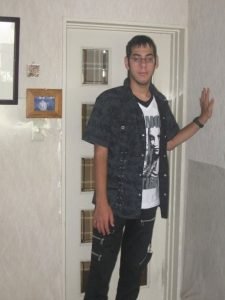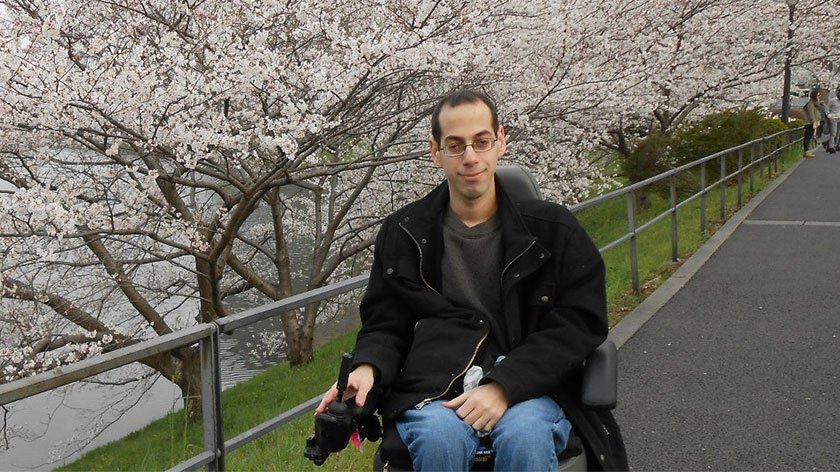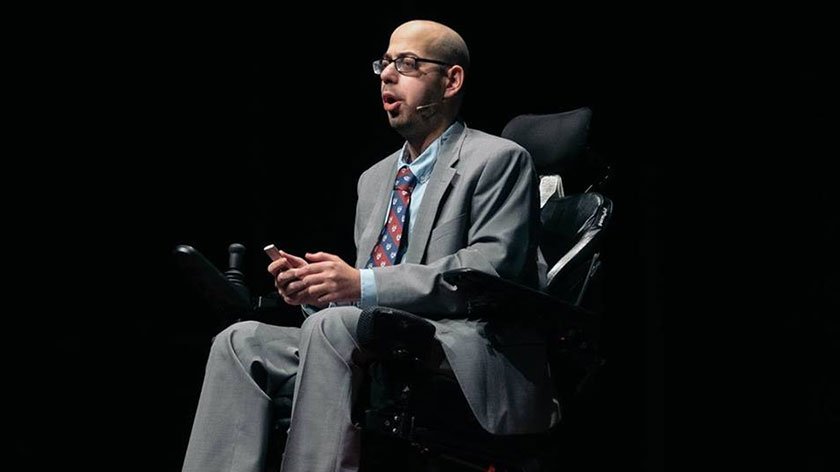By Mark Bookman
As a wheelchair user, I try my best to anticipate barriers to accessibility before traveling abroad. In practical terms, this means researching my destination ahead of time to discern if there are any stairs, closed-off spaces, or potential pitfalls (either literal or metaphorical). Despite my best efforts, there are ultimately some barriers that I cannot predict. Perhaps the taxi from the airport is unable to accommodate my particular brand of wheelchair. Or maybe my hotel room is a bit farther than I would like from the nearest convenience store. Such barriers are normally inconvenient, but they are not insurmountable. I’ll discover another way from the airport to my destination and make do without a convenience store for a couple of days. But I can only think of so many temporary fixes, and at the end of the day they are temporary. What if my stay is longer than a few days? What if I find myself visiting more places, doing more things, and having to anticipate more barriers than I would otherwise? This is one of issues that sets apart studying abroad from other kinds of travel.
In this brief essay, I draw on my personal experiences studying at four Japanese universities over the last ten years to call attention to some of the barriers that foreign people with disabilities may face during their time as a student in the land of the rising sun. I also explain how I overcame those barriers, offering a model for (self)advocacy and problem solving that may help other students in the future. My intention is to invite conversation about different kinds of strategies for navigating barriers to access not only in the Japanese academy but institutions across the world. I encourage readers to actively participate in the conversation by commenting on this article via the link below.


Things changed during my second study abroad experience at Sophia University in 2012. By that time, I had started to use an electric wheelchair to get around town. While I’d had an additional few years of Japanese training, I was nowhere near fluent enough to convey critical information about my disability. And unlike my time at Waseda, I was no longer living with an English-speaking host family. Instead, I’d moved into an all Japanese dorm with fifty guys who primarily spoke Japanese. While I received general support from the study abroad office on campus, I didn’t have anyone to prepare flashcards for me on a daily basis and explain my situation to random people I met on the street. I had to find another way to advocate for myself. Indeed, self-advocacy became particularly important inside of the classroom, when I had to explain to my peers and teachers why I was unable to handwrite kanji and participate in group assignments. My solution was to come prepared to devote extra time to all academic tasks. By building an extra fifteen minutes into my schedule before and after class, I made sure that I had ample opportunities to struggle through conversations about my needs, desires, and performance with my instructors. Nothing was guaranteed (this was before the legalization of ‘reasonable accommodation’ in 2016 via the Law for the Elimination of Discrimination Against Persons with Disabilities), but I found that most of my teachers were willing to listen to me if I took the time to explain why they should.


My third study abroad experience at Toyo University in 2014 was remarkable in many respects. For the first time, I was in charge of taking care of all accommodations for myself, including living arrangements and academic affiliation. I learned exactly how difficult it can be to find a permanent address, investigating upwards of 250,000 apartments online (and 40 in person) before finding one that could work – and my problems didn’t end there. While my Japanese was finally good enough to convey information about my disability to those around me, I was still unable to access many of the spaces I needed to go. At that time, I was studying Buddhist philosophy, so visiting a number of temples and shrines was a must for completing my fieldwork. Alas, it was all but impossible for me to do so because many religious sites had stairs and other architectural barriers. Rather than abandon my research and resign myself to despair, I decided to embrace each barrier I encountered as a teaching opportunity. How could I use my struggles help others create an inclusive society? By taking this question to heart, I simultaneously empowered myself and found a new way forward.
I am currently in the middle of my fourth study abroad trip to Japan at the University of Tokyo. My physical needs are quite different this time around then they were over the last few excursions. Now, I rely on assistance from caregivers and a range of technologies (a motorized hospital bed, a ventilator, etc.) to get around. Many spaces that used to be accessible for me are no longer usable. But I have learned several new survival strategies over the last few years that make my life easier. For one thing, I communicate frequently with my professors and peers at school. Constant contact allows me to share my frustrations with my friends, who help me brainstorm solutions to barriers. Indeed, my friends have become indispensable allies on my quest for creating an accessible world. Another trick that I’ve come to appreciate is relying on regional knowledge networks. My school does not know everything about living and working with a disability in Japan. How could they? Their jurisdiction applies to campus spaces, which rarely extend beyond classrooms and dorms, let alone trains, shopping malls, restaurants, and other spaces that I visit each day. To find out information about non-academic spaces that still play a role in my academic life, I routinely turn to local organizations like independent living centers and disability advocacy groups for support. Paired with campus resources, the advice of those organizations is enough to sustain my success.


There are many more things I can say about my study abroad experiences in Japan. For now, I’ll condense what I’ve written above into five main takeaways:
- Translate information about your disability ahead of time
- Devote extra time for identifying/explaining accommodations
- Think about barriers as learning opportunities rather than roadblocks
- Maintain constant contact with your peers to brainstorm solutions to challenges
- Look to local knowledge networks for answers about aspects of daily life that may not be covered by your university’s resource center.
What have you learned from your study abroad experience? Are there any strategies that you found particularly effective? If so, what are they, and why did they work? Let us know in the comments or, better yet, our forum for people with disabilities planning to study in Japan!
Mark Bookman received his B.A. in Global Interdisciplinary Studies from Villanova University in 2014 prior to researching Buddhist Philosophy in Japan as a Fulbright Fellow. He earned his M.A. in East Asian Languages and Civilizations from the University of Pennsylvania in 2016, where he currently studies the history of disability in Japan as a PhD Candidate. At present, Mark is working with experts on disability and barrier-removal at the University of Tokyo’s Research Center for Advanced Science and technology as a Japan Foundation Research Fellow.
Even though Mark keeps himself busy (VERY busy!) he has agreed to take on a role at Accessible Japan as a researcher and consultant.
You can read more about Mark on his website https://bookmanresearch.com/




Responses